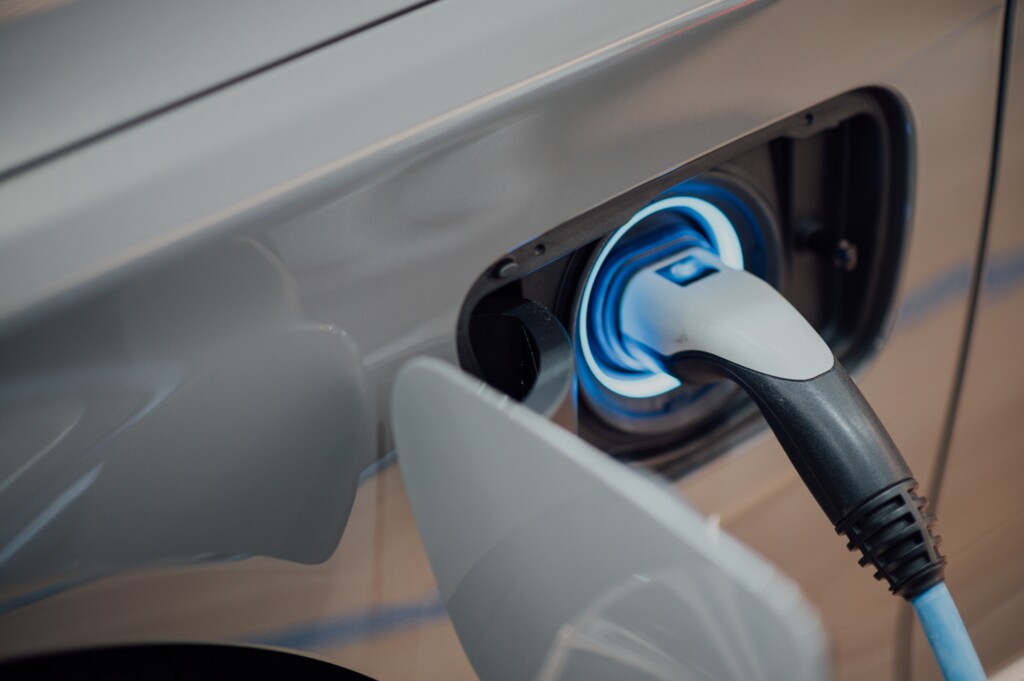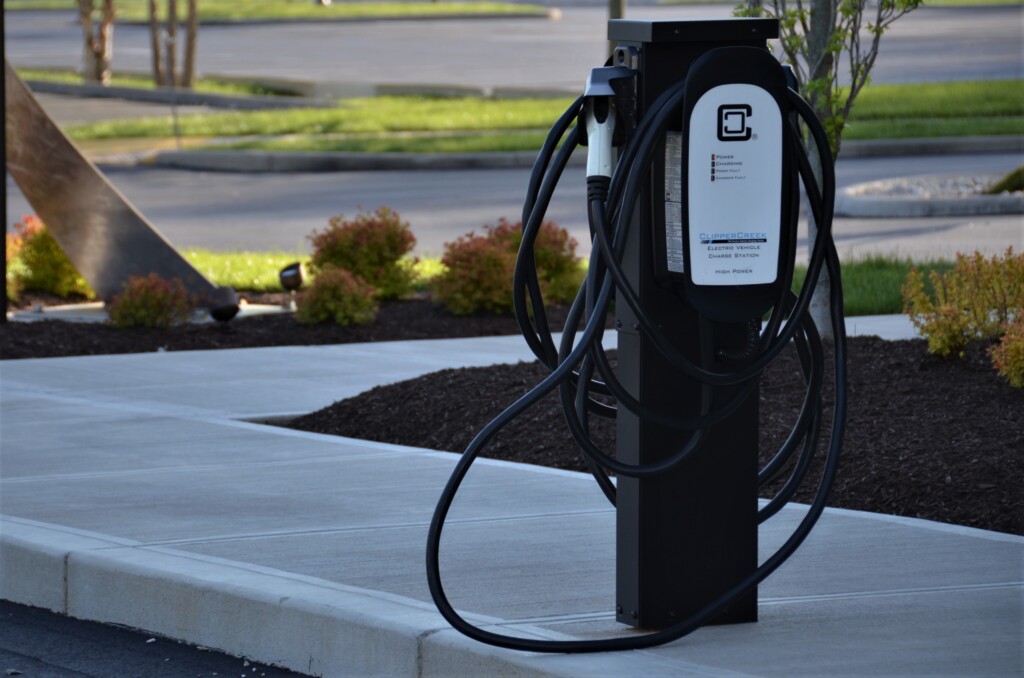Have you heard the news? Electric vehicles are the future! After all, the use of fossil fuels for transportation contributes to 29% of annual greenhouse gas emissions in the US according to the United States Environmental Protection Agency. This makes fuel-powered transportation the single most dangerous polluter to our environment. As car manufacturers move away from reliance on fossil fuels, so must we.
Tesla paved the way for electric vehicles, but the likes of Volkswagen, Toyota, BMW, and Honda are not far behind. In fact, Volkswagen has recently announced exciting plans to launch their first all-electric vehicle, the ID Buzz which you can read more about here. The thing is, us VW Bus enthusiasts are rather attached to our motors. How do we possibly trade it in for an electric alternative? Fortunately, holding onto your 1962 Bulli doesn’t mean letting go of a sustainable future. Electric vehicle technology has reached a stage where it’s now reasonably possible to convert our current vehicles to electric. In this article, we dive into the reasons why it’s worth considering.



What exactly are electric vehicles?
Generally, an electric vehicle, or EV, is a vehicle that is propelled using an electric motor that draws energy stored in its batteries. But how do the batteries store energy you ask? Well, there are actually three commonly practiced methods used by manufacturers today:
Battery Electric Vehicles (BEVs)
The BEV, also known as ‘the all-electric vehicle’, relies upon the energy produced by its lithium-ion batteries. These high-performance batteries are charged solely by an external power source.
Hybrid Electric Vehicles (HEVs)
The HEV is powered using both the traditional fossil fuel system and the regenerative braking system. This second system uses battery-stored energy produced by braking the vehicle during use. HEVs rely on their electric engine for initial power and the fuel engine kicks in as the vehicle’s load or speed rises.
Plug-in Hybrid Electric Vehicles (PHEV)
PHEVs rely on the combined power of fuel and electricity to run efficiently. With this type of vehicle, electricity is produced using only an external power source. With the ability to substitute electricity for fuel, PHEVs are generally the least energy-conscious electric vehicles.



The benefits of electric vehicles
As electric vehicle technology is continuously developed and improved, the benefits of EVs strengthen in equal measure. Already, these benefits are giving EVs the upper hand on fuel-powered vehicles. In fact, the only benefit of fuel-powered vehicles at this point is accessibility. Let’s dive into some of the main benefits of EVs and see why they are indeed the future.
Self-sufficiency
Not only is electricity a more abundant resource, but it is also much easier to generate than fossil fuels. Rather than relying upon giant oil corporations to power your vehicle cheaply and reliably, EVs cut out the middle man and generate power straight from the source. Essentially, charging your EV is equivalent to hooking up your fuel tank directly to the North Sea oil wells.
Following the devastating fuel crisis that led to consumers gluing their hands to the ground in protest in London this year, it has become menacingly apparent that we cannot rely on a consistent fuel supply from other countries. By switching to electric, we can rely on our own power grid instead. This gives us a much-needed sense of security and autonomy over the use of our vehicles.
Cheaper and easier to maintain
Sure, the initial costs of converting your vehicle to electric can dig a few deep holes in your pocket. However, the cost is equal to or less than the cost of buying a new EV. Plus, EVs are immensely more cost-efficient in the long run; the reason for this is two-fold. Firstly, you’d save a well’s worth of fuel. Especially if you love taking long trips along the Pan-American Highway or Route 66.
A report by News Nation published in 2021 states that the average American spends $1,837 per annum on fuel. EV owners, on the other hand, spend around $600 per year on charging their vehicles. This kind of saving can make a huge difference to your quality of time if you’re savvy about it! Secondly, EVs require much less maintenance than a fuel-powered engine. Imagine never having to worry about engine oil, fan belts, transmissions, turbos, or fuel filters ever again. Overall, EVs allow you to drive more and worry less.
More climate-friendly
While there are many personal benefits to converting your VW Bus to electric, the greatest and most important benefit is actually to our planet and population. Some governments don’t want to acknowledge the catastrophic impact fracking and the burning of fossil fuels have on climate change. However, the two are inextricably linked. It’s an unfortunate fact that if we continue to burn fossil fuels at our current rate, global warming will fly past the 2% safety cap by 2050.
The good news is that if we switch to electric now, we can save up to 1.5 million grams of CO2 from polluting the atmosphere per vehicle per year. Since transportation is the biggest contributor to an individual’s environmental impact, each vehicle converted to electric will lessen the impact of global warming. In turn, this would curb the devastation caused by pollution to people and our planet. However, we must also remember that electricity consumption isn’t completely environmentally sound either, and that it shouldn’t be a replacement for the practice of slow travel. Take a look at our Guide to Slow Travel to learn more about the importance and benefits of this practice.



A more enjoyable driving experience
Sometimes, it’s the simplest of pleasures that make the biggest difference in our lives. The sound of birds chirping at dawn. The sound of the ocean crashing against the shore. Or the sound of silence as we drive along scenic highways. However, you can only experience this last one in an electric vehicle. Without a fuel-powered engine firing 1000s of explosions per minute, there’s no noise to contend with as you drive. This gives you the great pleasure of being able to concentrate more on enjoying your drive.
What are the drawbacks to electric vehicles?
Electric vehicles are sometimes criticized for not being as environmentally friendly as they are marketed to be. In the interest of full disclosure, it’s therefore worth addressing that EVs are not completely guilt-free of their environmental impact. After all, electric vehicles store their energy in batteries, and lithium-ion batteries have become preferred in recent years because of their performance impact. Unfortunately, their production does have a high environmental impact. However, when EVs are compared to fuel-powered vehicles over their average lifespan, the EV proves to be much, much less impactful.
Other drawbacks to consider are the distance limits and speed impact of EVs. According to way.com, BEVs have a 250-mile average range on a single full charge while HEVs typically only run for 50-60 miles in electric mode. However, newer BEV models from the likes of Tesla and Mercedes are running up to 500-600 miles on a single charge. Bear in mind that EVs are often substantially heavier than fuel-powered cars due to the extra battery load. In turn, this makes EVs, particularly larger vehicles like VW Buses, somewhat slower. When it comes to vehicle performance, everybody has their own needs and preferences and these are important things to consider when deciding on converting your VW Bus to an EV.



Converting your VW Bus to an EV
Converting your VW Bus from mechanical to electrical is a big task to undertake and it’s usually best to rely on a specialist to tackle the job. However, there are many resources from YouTube videos to E-books like this one that give you a good shot at tackling it yourself. With the rise in demand for this kind of job, though, comes the rise in supply. Companies specializing in electric vehicle conversions are at an all-time high, making it a very accessible option. While some are honing in the more widely practiced BEV and HEV conversions, there are other companies experimenting with alternative ways to electrically power your vehicle. One company, in particular, has a vision for making EVs entirely sustainable. Meet Solarrolla, one of the companies paving the way for solar-powered vehicles.
How Solarrolla is changing the EV game for VW Buses
Founded by partners Bret and Kira Belan in Ashland, OR, Solarrolla is an electric vehicle specialist that focuses on solar panel arrays. By being completely self-sustaining, this new kind of EV technology gives drivers greater freedom on the road. More importantly, Solarrolla’s solar-powered vehicles are much more environmentally friendly than EVs that are charged via an electric grid. Whether it’s outfitting a current vehicle with solar or fully converting it to electric, Solarrolla curbs climate change one panel at a time.
Solarrolla’s Electric VW Bus conversions
While Solarrolla converts all kinds of vehicles, it has taken a particular interest in converting VW Buses. Brett points out that they’re particularly adept at off-grid living and their flat roofs provide the perfect surface area for a large PV (photovoltaic) array that can tilt for maximum solar exposure.
The company’s interest in electric VW Bus conversions began in 2016 with a 1973 VW Transporter. Brett and Kira replaced its roof with a folding roof tent with a 1200-watt solar panel covering its entire surface. They also added a lithium battery pack with a 100-mile range, an inverter for mains plug-ins, an AC electric motor, and a cooktop, fridge, and sink to make it a fully functioning electricity-powered campervan. If the sound of this VW Bus has piqued your interest, then you’re in luck because Brett and Kira recently put it up for sale! If you couldn’t imagine parting ways with your own bus, though, perhaps get in touch with Solarrolla to see how they can convert yours.
Is an EV conversion in your future?
Between all of the benefits of EV conversions from curbing global warming to greater self-sufficiency, it seems worth giving serious consideration. For many of us VW Bus owners who travel long distances and strive for self-sufficiency and greater connection to our natural environment, these benefits are particularly appealing. As the switch to EVs gains momentum each year alongside technological progress, the conversion and mainstream use of EVs is quickly becoming an achievable reality. As Solarrolla says, there really isn’t a vehicle more well-suited to electric conversions than the VW Bus.




[…] Our traditionally built Bullies and Splitties have stood the test of time with our devoted love and care. However, there’s more we can be doing to make these old-timers more reliable. Adding solar power to our engine systems is one of the best ways to do so. Not only do they offset our personal carbon footprints, they make life on the road much more relaxed. Whilst traditional mechanics rely on the engine’s use to charge the batteries, solar-powered engines can also rely on the sun. Each moment that the sun shines on your VW Bus’ solar panel, its battery is being charged. This way, it is much less likely you’ll ever find yourself in a non-start situation. To read more about the possibility of going solar, read our article about electric vehicles. […]